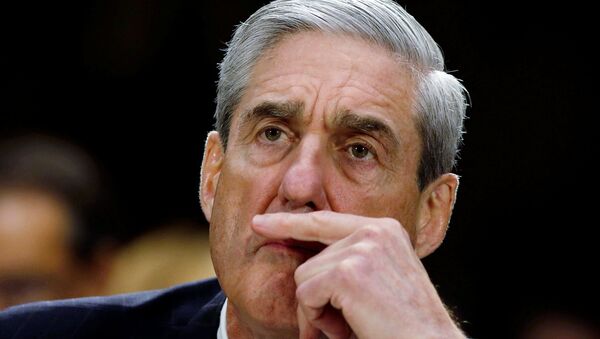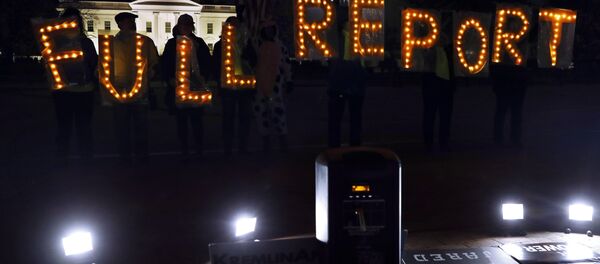On Tuesday, Attorney General Bill Barr said that he would release special counsel Robert Mueller's report on alleged Russian interference in the 2016 election within the week. However, parts of the report would be redacted to safeguard the privacy of individuals mentioned in it.
"I don't intend at this stage to send the full, unredacted report to the [Senate Judiciary] Committee," Barr said, adding that the report will explain why each redacted section was not being released to the public.
"Obviously what we are talking about is standard operating procedure, and regardless of where your politics fall, whether you're pro or anti Trump, you still have to say, ‘Yeah, this is the way any government agency would do this,'" Rall told hosts John Kiriakou and Brian Becker.
"Even within the construct of the… Russigate investigation, it is amazing to me how they [Democrats] are insisting on doubling, tripling and quadrupling down on this narrative that not many people were concerned about in the first place. So, it never really caught fire, and they're still trying to beat this deader-than-dead horse," Rall noted.
Meanwhile, Republican Congressman Devin Nunes recently announced that he will send eight criminal referrals to the Justice Department, accusing unnamed people of lying to Congress, misleading Congress and leaking classified information.
According to a report released Monday by the Federation of American Scientists, which cited data released by the US Justice Department last week, there were 120 leaks of classified information to the Justice Department in 2017 compared to 88 leak referrals in 2018, averaging out to 104 leak referrals per year under the Trump administration. By contrast, the average number of leak referrals under the Obama administration was 39 per year.
"Referrals for investigations of classified leaks to the Department of Justice from our intelligence agencies have exploded," then-Attorney General Jeff Sessions said in 2017.
"There have been very few actual cases that have come out of these record referrals. Can you speculate as to why we are not seeing more cases?" Kiriakou asked Rall.
"There's the pre-question you didn't ask, which is: why is there more leaking in the Trump administration? And I think that's a reflection of what we heard coming out from books like ‘Fire and Fury,'" Rall responded, referring to a 2018 book by journalist Michael Wolff that reveals what happened behind the scenes during the first few months of Trump's presidency.
"There's a lot of distrust of this president and this administration. You have a lot of people at odds with each other, ideologically and personally. And they are all stabbing each other in the back, and leaks is one of the ways that you promote your agenda in Washington. But in terms of why there are not more referrals, that is very hard to say. You have to say that either the proof is lacking or the spirit is weak when it comes to prosecuting these things. I would suspect that the Trump administration is not particularly keen to find out everyone who is leaking. When everyone is doing it, you don't want to start prosecuting anyone else, because then you depose them, and they start talking about the leaks that they know about, and then you might get caught," Rall explained.




